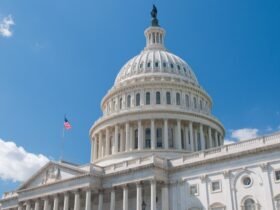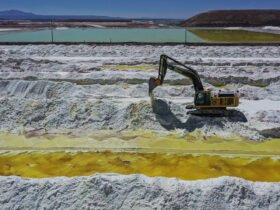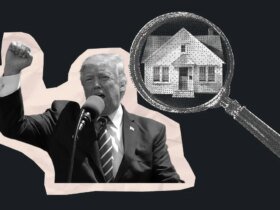In a recent episode of “The Loan Officer Podcast,” co-hosts Dustin Owen and John Coleman dive into the possible consequences of Elon Musk’s idea to… Consumer Finance Protection Bureau (CFPB).
This conversation has been edited for length and clarity. To start the episode, Coleman asks Owen to share his views on Musk’s plan to eliminate the CFPB.
Coleman: Dustin, do you think Elon Musk will shut down the CFPB in his new role in government?
Owen: No. We know there’s a new sheriff in town. One of the Trump administration’s initiatives is the creation of the Department of Government Efficiency (DOGE). Musk says out loud that the first thing he’s going to do is close down the CFPB. This has consequences for the mortgage sector and consumers in the sector.
CFPB also regulates personal loans, credit cards, and debt servicing. So that would probably include student loans and for-profit education.
Owen then explores why the U.S. government originally created the CFPB.
Owen: In 2008, the financial collapse occurred primarily due to the bursting of the housing bubble due to unregulated mortgage lenders and Wall Street banks that were too big to fail due to inadequate guardrails. The CFPB emerged from the Dodd-Frank Act. The idea for the Dodd-Frank Act came from Harvard law professor Elizabeth Warren. The Dodd-Frank Act went into effect in July 2010 and in July 2011 we had the CFPB.
Why do we need the CFPB? Wall Street said, ‘Hey, we like the mortgage industry better.’ Lenders said, “Well, we can’t give you more because there aren’t that many people who qualify for more.” And they said, ‘Let’s loosen up the qualifications. Let’s create alternative financing options.’
Wall Street wanted more. I need to create more mortgages so I can create more collateralized debt obligations. I can then sell them to investors abroad. I can then sell them to life insurers and then to pension funds. And so the bubble was created.
Owen and Coleman turn the conversation to explore why the CFPB shouldn’t go away.
Owen: The CFPB prevented borrowers from being taken advantage of. Pareto’s principle applies: 80% do the right thing and stick to the rules. It’s the 20% – the bad apples – that have screwed things up. We have to protect the 20%. I don’t want the CFPB to go away because I think it does more good than harm.
Owen also explains that the bigger problems with the CFPB lie in the way it enforces rules rather than setting clear boundaries for mortgage brokers and bankers to follow. He also delves into the potential consequences of removing the agency’s oversight of mortgage companies.
Owen: The industry thinks it is in our best interest to keep the CFPB because it would be expensive to dismantle everything we have built and created over the last thirteen years. But actually abolishing it would actually be a punishment for the mortgage industry.
To end the conversation, Coleman and Owen allude to why Musk and his constituents want to dissolve the agency.
Owen: Look, if you’re the rich people in power –
Coleman: I want to stay that way. So remove all the handicaps and obstacles that prevent people who are not like me from catching up. I don’t want a fair race, Dustin.
Owen: Fact.











Leave a Reply